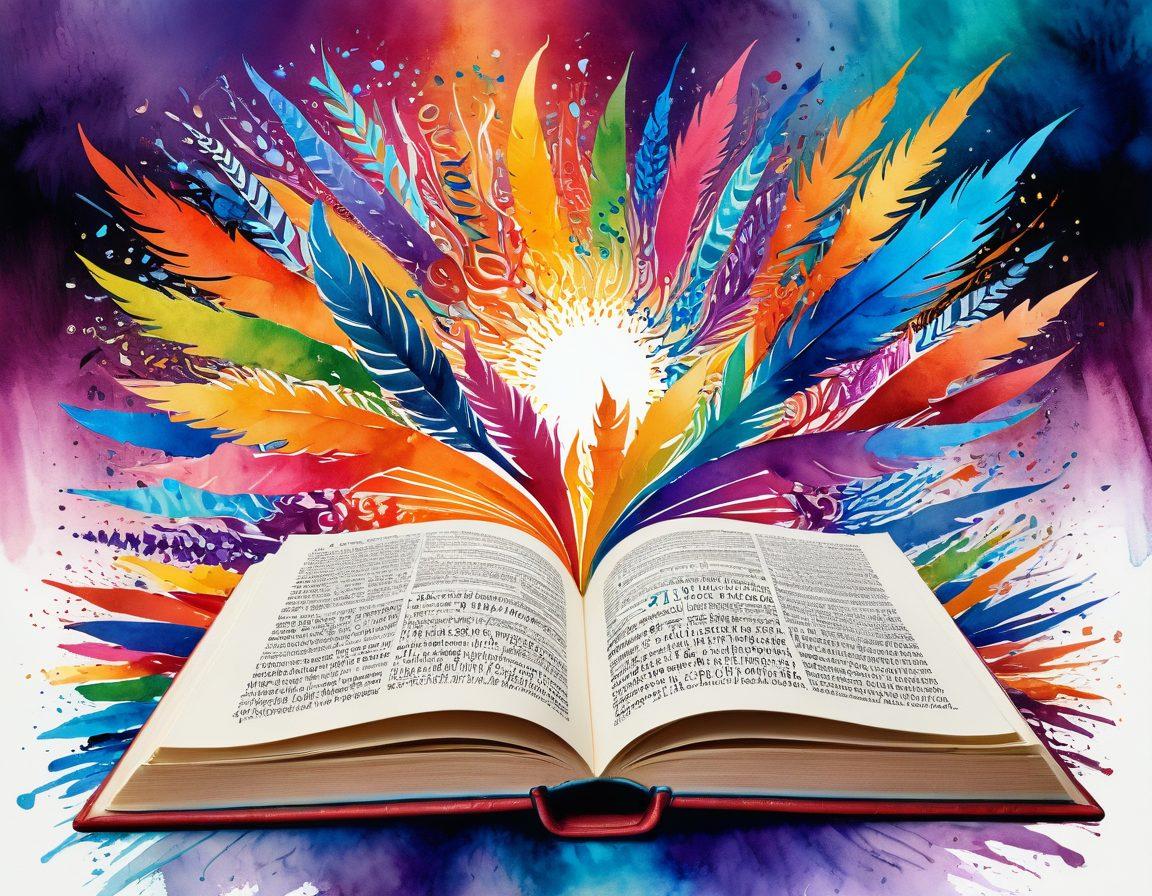Unlock Your Writing Potential: The Ultimate Guide to Synonyms and Antonyms in Language Resources
Every writer dreams of captivating their audience, delivering their message with clarity and flair. But how often have you found yourself staring at a blank page or repeating the same words in your writing? This is where the magic of synonyms and antonyms comes into play. They are the secret keys to enriching your vocabulary and enhancing your craft. By harnessing the power of these linguistic tools, you can unlock new dimensions in your writing and elevate your communication skills to new heights. So, how do you effectively leverage this vast lexicon at your disposal? Let’s explore!
Imagine sitting down to craft the next great bestseller or an academic article that will command attention. You start typing, but the same words keep surfacing—what do you do? Here’s where your trusty thesaurus becomes your writing aid. A thesaurus not only provides synonyms, ensuring your text doesn’t become monotonous, but it also offers antonyms, giving you the opportunity to explore contrasting ideas and emphasizing your arguments. Think about it: what effect does changing a single word have on your message? Does ‘happy’ convey the same nuance as ‘ecstatic’? As writers, we must nudge our vocabulary and expand our word choice to achieve the precise emotional tone and clarity we desire.
The beauty of utilizing synonyms lies not just in diversifying your vocabulary, but in enhancing the overall quality of your writing. Consider a phrase thesaurus as your personal writing resource, opening up a world of richness and variety. When you feel stuck, take a moment to explore different word meanings. One word can evoke a multitude of feelings based on its context; understanding these nuances can be the difference between a lackluster description and one that calls to mind vivid imagery. Have you ever experienced a moment where finding the right word transformed a mundane sentence into something poetic? That’s the power of language enhancement.
Antonyms, often overlooked, have their own treasure trove of benefits when it comes to writing. By introducing contrast, you can draw your reader's attention and emphasize critical points. In creative language, oppositional terms can spark imagination and bring depth to your character development. Just think of how impactful it is to see a character wrestle between love and hate, or joy and despair. Utilizing these semantic tools not only strengthens your narrative but also offers readers an emotionally resonant experience. Are you ready to add more depth to your storytelling through opposites?
Finally, let’s not underestimate the importance of resources in any writer's journey. Whether you’re engaging in academic writing or crafting a heartfelt poem, a solid dictionary or a nuanced glossary can serve as invaluable writing support. Language tools and word references are like the co-pilots of your writing adventure, guiding you when you falter and providing clarity when you feel lost. So, seize these language resources; let them be your partners in crafting prose that resonates. Are you ready to embark on this journey to refine your craft and elevate your writing through the effective use of synonyms and antonyms? Your audience is waiting!
Mastering Vocabulary: Essential Language Tools for Every Writer
In the dynamic world of writing, having a robust vocabulary is akin to a painter wielding a palette brimming with colors. Imagine wanting to express a feeling of bliss and settling for just 'happy.' But what if you could craft an intricate emotional landscape using synonyms that encapsulate joy, ecstasy, and elation? This exploration of vocabulary isn't merely a linguistic exercise; it's about enhancing your writing and connecting with your readers. Welcome to the journey of mastering vocabulary—a vital part of any writer's toolkit.
Synonyms and antonyms are your best friends in navigating the vast expanse of language. A thesaurus is an invaluable writing aid, helping you discover the nuance behind each word choice. Did you know that the word 'happy' has over a hundred synonyms? Picture this: you’re working on a piece of academic writing and aim to articulate a sense of contentment. Instead of repeating 'happy,' you can select 'joyful,' 'satisfied,' or even 'contented.' Words are not just powerful tools; they are the instruments through which you conduct your thoughts and ideas. How do you choose the right one?
There’s also the treasure trove of antonyms. Understanding words through their opposites enhances your lexicon dramatically. For instance, contrasting 'happy' with 'sad' can elucidate emotional depth in your storytelling. When readers encounter your work, they can’t help but feel the stark differences you portray. As writers, utilizing semantic tools enables us to create vivid imagery and emotional connection. Think about your last piece—was it colorless or was it vibrant? What did you learn from your word reference exploration?
Furthermore, when you embrace language resources like glossaries or phrase thesauruses, you empower your text with layers of meaning. A powerful vocabulary encourages movement from basic writing to rich narratives that spark interest. Language enhancement is no longer about simply avoiding repetition; it’s about crafting a masterful composition where every word supports your intended message. Have you ever pulled an all-nighter to edit a piece only to find it still missing that sparkle? That's the magic of effective word choice!
As you dive deeper into the art and science of linguistics, remember that your writing journey begins with the first word. With each synonym, antonym, and careful consideration of vocabulary, you are not just writing; you're communicating. Whether you’re penning a thrilling novel or composing an academic paper, the right language tools amplify your voice and highlight your message. So, what are you waiting for? Embrace your thesaurus and dictionary; your next age-defining paragraph awaits!
Transform Your Writing: A Deep Dive into Lexicon and Word Choices
Every writer, whether a novice or a seasoned pro, knows that the power of language lies in the nuances of word choice. When diving deep into the lexicon of a language, it's as if you’re holding a treasure map filled with gems waiting to be uncovered. A thesaurus, for instance, serves as the ultimate companion in this journey. It offers synonyms to add flair, and antonyms to present contrast—both vital for elevating your writing. But how do we harness these linguistic tools to transform our words into impactful messages?
Imagine sitting in a café, the aroma of fresh coffee wafting through the air, and you’re crafting your next piece. You want to convey the idea of a 'happy' moment, but instead of using the same old word, what if you chose 'ecstatic' or 'elated'? Each word carries its weight, evoking varied emotions and imagery. This is the beauty of a rich vocabulary. The ability to switch from 'happy' to 'overjoyed' or 'content' adds depth to your writing and surprises your reader, encouraging them to engage with your text on a deeper level. Isn't that what we all crave—to connect?
But within this exciting world of synonyms lies a challenge: the need for balance. Not every synonym fits every context. A phrase thesaurus can help, but as writers, we must remain vigilant. Choosing the right word is crucial—what feels poetic in one line may seem clunky in another. Knowing when to use 'happy' versus 'euphoric' can determine whether your writing resonates or perplexes. This self-awareness in word choice reflects your understanding of the subtleties of language, which is the hallmark of accomplished writers. How often do we pause and question our choices?
Let’s talk about antonyms—those powerful little opposites that can create dramatic tension or clarify meanings. Words like 'love' and 'hate' are not just opposites; they paint an emotional landscape that readers can navigate. They can create contrast, thereby enhancing your message and drawing your audience deeper into your narrative. The engagement in your writing can hinge on these dualities. The right language resources can guide you toward striking the perfect balance between synonyms and antonyms, providing a more layered reading experience. Why not explore this dynamic in your next piece?
In the realm of academic writing, the use of diverse vocabulary isn't a mere embellishment but a necessity. A strong lexicon not only showcases your knowledge but also communicates your ideas effectively. Language resources, such as dictionaries and glossaries, can serve as invaluable editing support, sharpening your word choice and enhancing text quality. As you embark on this adventure of discovering words, remember that your journey is ongoing. With every new word learned, you unlock another door within your writing potential. What treasures await you on the other side?


